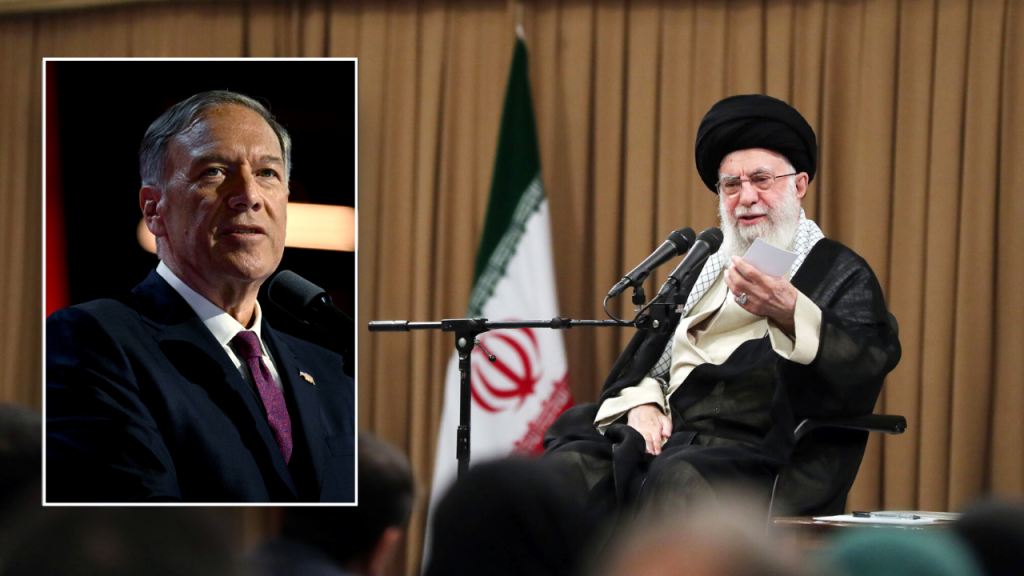Former Secretary of State Mike Pompeo criticized the Biden-Harris administration for its perceived policy of “weakness and appeasement” towards Iran after a recent intelligence report revealed that the country was attempting to sabotage former President Trump’s presidential campaign. The report, disclosed during an Office of the Director of National Intelligence press briefing, stated that U.S. spy agencies had observed Tehran working to influence the election using online personas and propaganda mills to spread disinformation. While the report did not explicitly state that Iran was targeting Trump, an official noted that there had been no shift in Iran’s preferences since 2020, indicating the continued focus on the Republican candidate.
Pompeo, speaking to Fox News Digital, expressed little surprise at Iran’s attempts to interfere in the election, citing the regime’s desperation for a change in administration. He accused the Biden administration of enabling the Iranian regime, leading to its resurgence in power and wealth. Pompeo warned that Iran, which he claimed despised American values, would likely continue its meddling in the upcoming 2024 presidential election to support Kamala Harris and her policies. The Permanent Mission of the Islamic Republic of Iran denied the allegations of interference, stating that the accusations were meant to manipulate election campaigns through psychological operations.
The Biden administration has faced scrutiny over its approach to Iran, with critics like Pompeo alleging that its policies have emboldened the Iranian regime to engage in nefarious activities, including attempts to influence American elections. The intelligence report revealing Iran’s efforts to sabotage Trump’s campaign has raised questions about the extent of Tehran’s involvement and motivations. The White House has been called upon to address these concerns and clarify its stance on Iran’s actions. At the same time, Iranian officials have denied any involvement in election interference and dismissed claims of a plot to assassinate Trump during a rally in Pennsylvania.
In response to the alleged assassination attempt on Trump, the FBI’s deputy director, Paul Abbate, stated that officials were not ruling out any possibilities, including Iran’s potential involvement. While there was no concrete evidence linking Iran to the incident, Abbate emphasized that all avenues were being explored to determine the truth behind the attack. The joint hearing on Capitol Hill sought to shed light on the situation and investigate any leads that could uncover the truth behind the shooting incident. The ongoing investigation highlights the complexities of international relations and the need for thorough examination of potential threats to national security.
The accusations and denials surrounding Iran’s involvement in U.S. elections and attempts to assassinate political figures underscore the high stakes involved in international diplomacy and security. The role of intelligence agencies in gathering information and assessing foreign threats has become crucial in identifying and countering potential risks to the country’s democratic process. The political tensions between the U.S. and Iran, exacerbated by differing ideologies and policy approaches, raise concerns about the possibility of further interference and violence. The ongoing scrutiny of Iran’s activities and intentions highlights the challenges faced by policymakers in navigating complex international relationships and safeguarding national interests.
As the investigation into Iran’s alleged interference in U.S. elections and the assassination attempt on Trump continues, the Biden administration faces pressure to address the threat posed by the Iranian regime and take necessary steps to protect American democracy. The revelations about Tehran’s efforts to influence the political landscape and potentially target political leaders underscore the need for vigilance and proactive measures to safeguard the integrity of the electoral process. The intersection of foreign policy, intelligence gathering, and security concerns highlights the intricate web of challenges faced by policymakers in addressing threats from adversarial regimes like Iran. Going forward, a nuanced and strategic approach will be essential in navigating the complexities of international relations and protecting national security interests.


